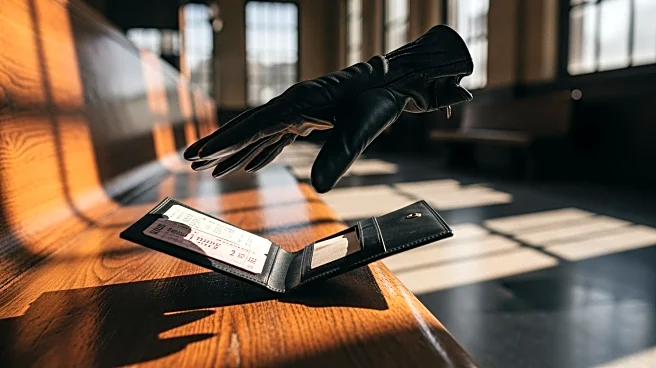What's Happening?
Ivan Skoko, a Brazilian jiu-jitsu gold medalist, intervened in an attempted robbery at Borough railway station in London. The incident occurred when Skoko heard a loud scream from a fellow passenger and
quickly identified a robbery in progress. Using his martial arts skills, Skoko tackled the suspect, who was found with a hammer and two phones, one in a 'Hello Kitty' case. The suspect was arrested by police on charges of theft, possession of an offensive weapon, and handling stolen goods. Skoko, originally from Croatia, has a history of confronting criminals, motivated by a past experience of having his bike stolen.
Why It's Important?
Skoko's actions highlight the role individuals can play in crime prevention, especially in urban areas where petty theft is common. His intervention not only prevented a theft but also underscored the limitations of police resources in handling such crimes. This incident may encourage more citizens to take proactive measures in safeguarding their communities, potentially leading to increased self-defense training and community vigilance. It also raises questions about the adequacy of law enforcement resources and the reliance on civilian intervention in crime prevention.
What's Next?
The arrest of the suspect may lead to further investigations into similar thefts in the area. Skoko's actions could inspire other martial artists and civilians to engage more actively in crime prevention. There may be discussions on the balance between civilian intervention and police responsibilities, possibly influencing public policy on community safety and self-defense training.
Beyond the Headlines
Skoko's vigilantism raises ethical questions about civilian involvement in law enforcement and the potential risks involved. While his actions were effective, they also highlight the dangers of confronting criminals without professional training. This incident could spark debates on the legal implications of civilian arrests and the need for clearer guidelines on self-defense and crime intervention.








